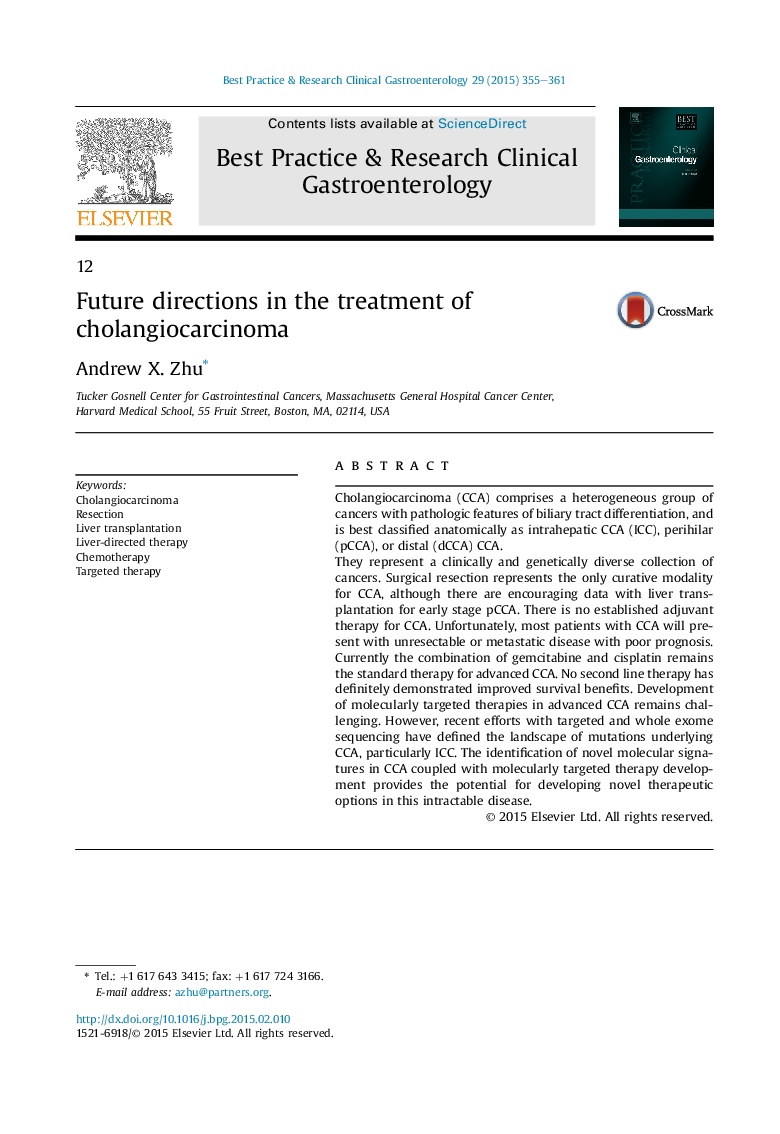| Article ID | Journal | Published Year | Pages | File Type |
|---|---|---|---|---|
| 3254332 | Best Practice & Research Clinical Gastroenterology | 2015 | 7 Pages |
Cholangiocarcinoma (CCA) comprises a heterogeneous group of cancers with pathologic features of biliary tract differentiation, and is best classified anatomically as intrahepatic CCA (ICC), perihilar (pCCA), or distal (dCCA) CCA.They represent a clinically and genetically diverse collection of cancers. Surgical resection represents the only curative modality for CCA, although there are encouraging data with liver transplantation for early stage pCCA. There is no established adjuvant therapy for CCA. Unfortunately, most patients with CCA will present with unresectable or metastatic disease with poor prognosis. Currently the combination of gemcitabine and cisplatin remains the standard therapy for advanced CCA. No second line therapy has definitely demonstrated improved survival benefits. Development of molecularly targeted therapies in advanced CCA remains challenging. However, recent efforts with targeted and whole exome sequencing have defined the landscape of mutations underlying CCA, particularly ICC. The identification of novel molecular signatures in CCA coupled with molecularly targeted therapy development provides the potential for developing novel therapeutic options in this intractable disease.
